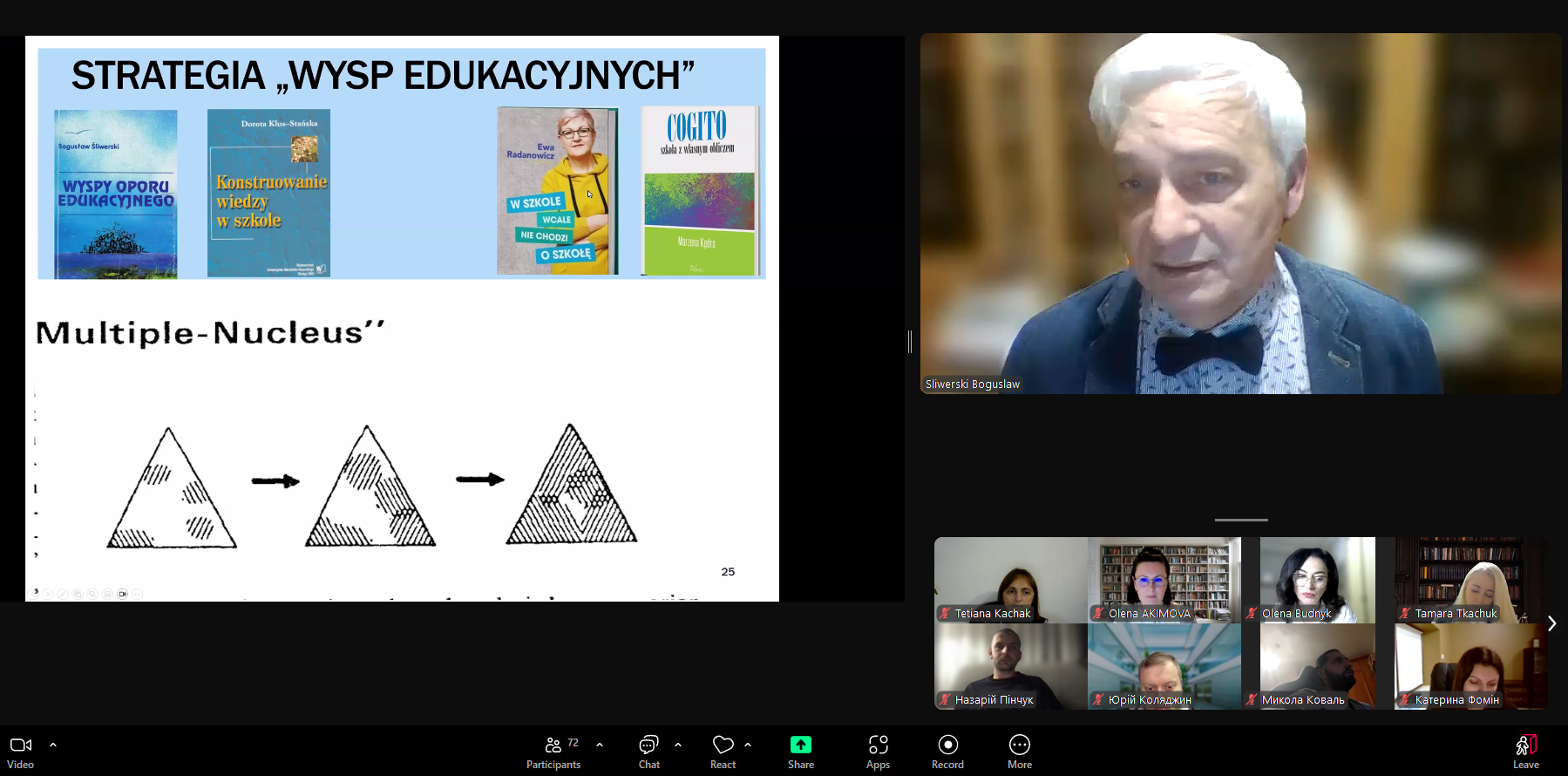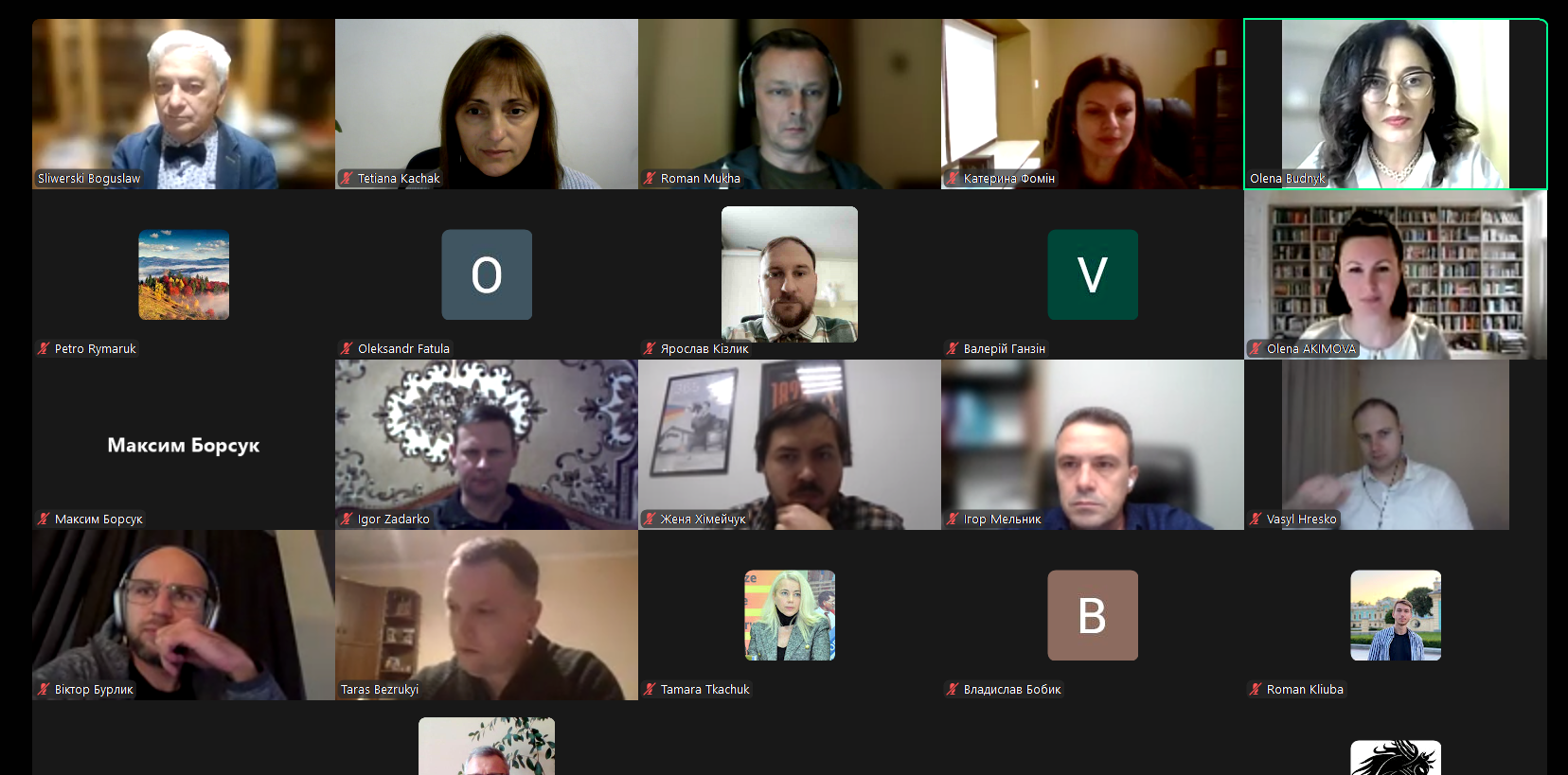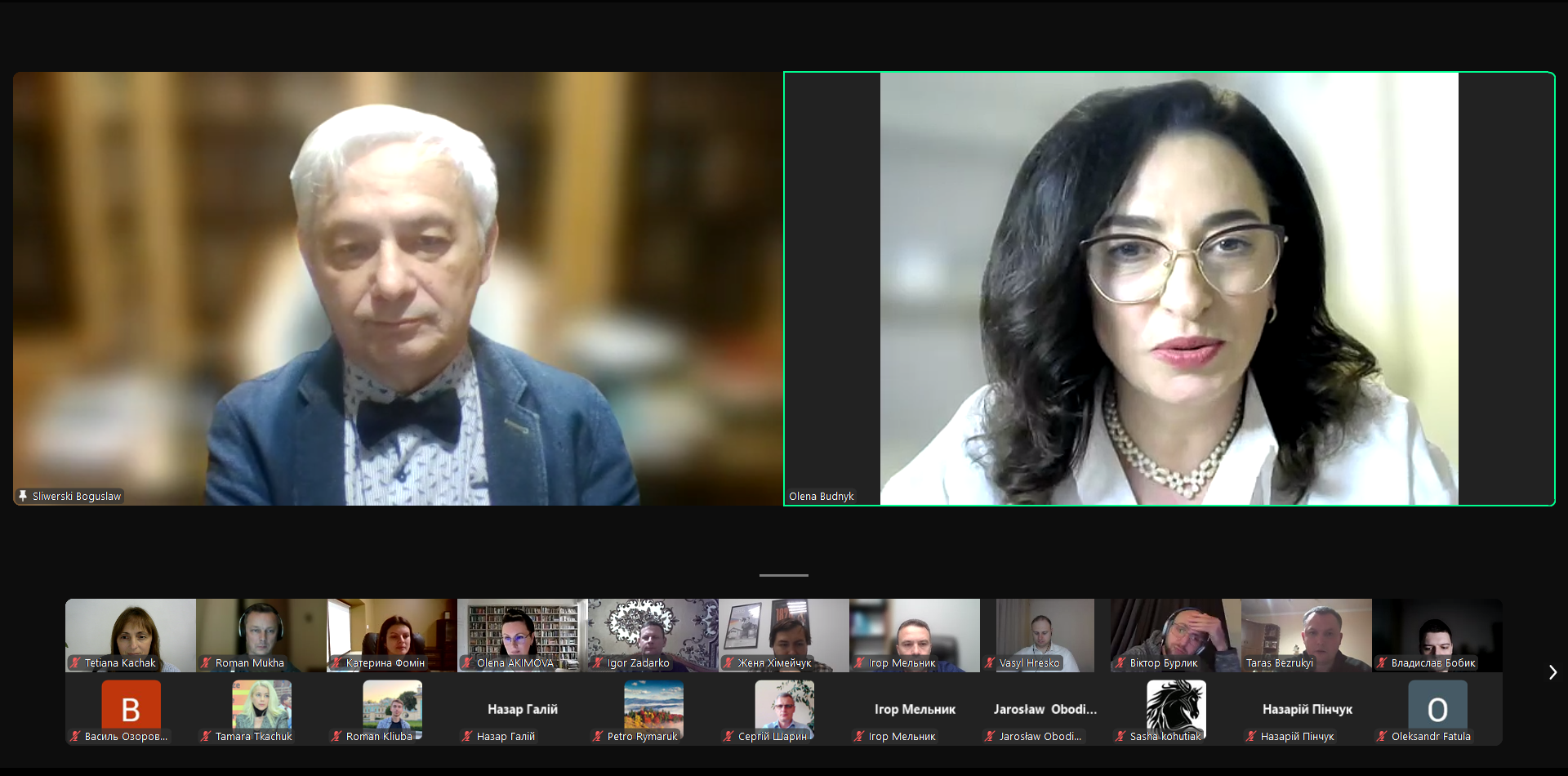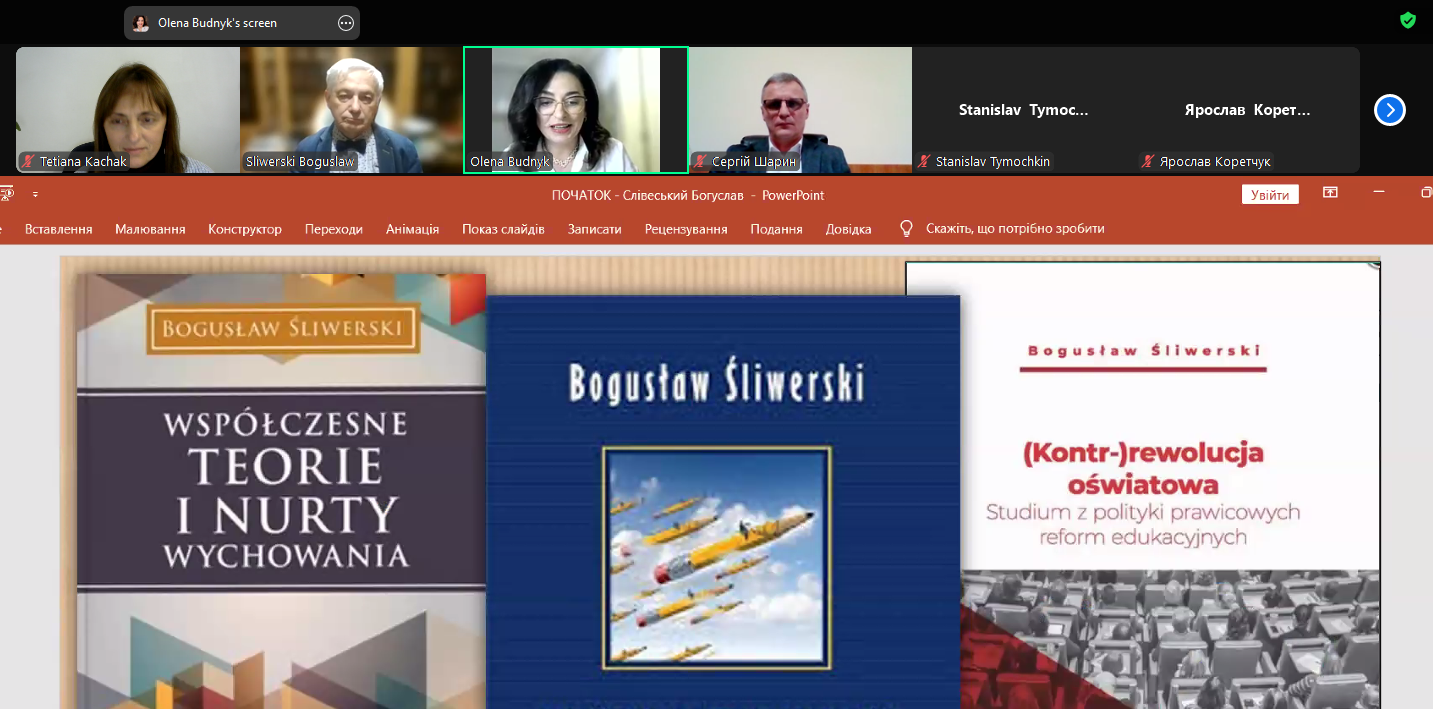On December 10, the Centre for Innovative Educational Technologies ‘PNU EcoSystem’ at Vasyl Stefanyk Precarpathian National University hosted a remote open lecture for PhD students. The lecture was delivered by Professor Bogusław Śliwerski, Doctor with Habilitation, Full Professor in Humanities, Faculty of Educational Sciences at the University of Lodz and the Maria Grzegorzewska University in Warsaw (APS), and Honorary Chairman of the Committee of Pedagogical Sciences of the Polish Academy of Sciences. The topic of the lecture was “Alternative Education in Science and Technology.” This event was part of the course “Innovative Pedagogical Technologies in Higher Education and Professional Ethics” and was conducted in a distant format.
In his welcoming speech, Vice-Rector Professor Serhii Sharyn stressed that the traditions of international cooperation between our university and the University of Lodz have been developing for a long time, greeted the participants of the meeting and stressed the importance of holding such events with prominent Polish scientists for Ukrainian postgraduate students who are starting their scientific career.
The moderator of the event, Professor Olena Budnyk, introduced the participants to the scientific achievements of the outstanding humanist scientist, author of more than 800 scientific texts. She presented some of Professor Bohuslav Sliverskyi’s scientific books, summarised his activities in training scientific personnel (21 Doctors of Philosophy, reviewed 75 dissertations, 87 habilitation papers and 36 applications for the title of Professor), and outlined his main research interests, such as general pedagogy, philosophical and theoretical foundations of education, comparative pedagogy, andragogy and (early) school pedagogy (or primary school pedagogy).
In his speech, Professor Bogusław Śliwerski, outlined five strategies for reforming education and specific features of seven educational revolutions, summarised the essence of alternative education, presented the tasks of ‘new education’, social challenges to the implementation of author’s education, and difficulties of alternative education in Poland and Ukraine. The subject of active discussions and debates among postgraduate students and university professors were also problems related to alternative education, in particular in higher education institutions, in Ukrainian institutions during the war, etc.
The meeting was attended by our young scientists, postgraduate students, our professors and guests from other universities in Ukraine and Poland. As a result, several aspects for further international cooperation have been identified.




